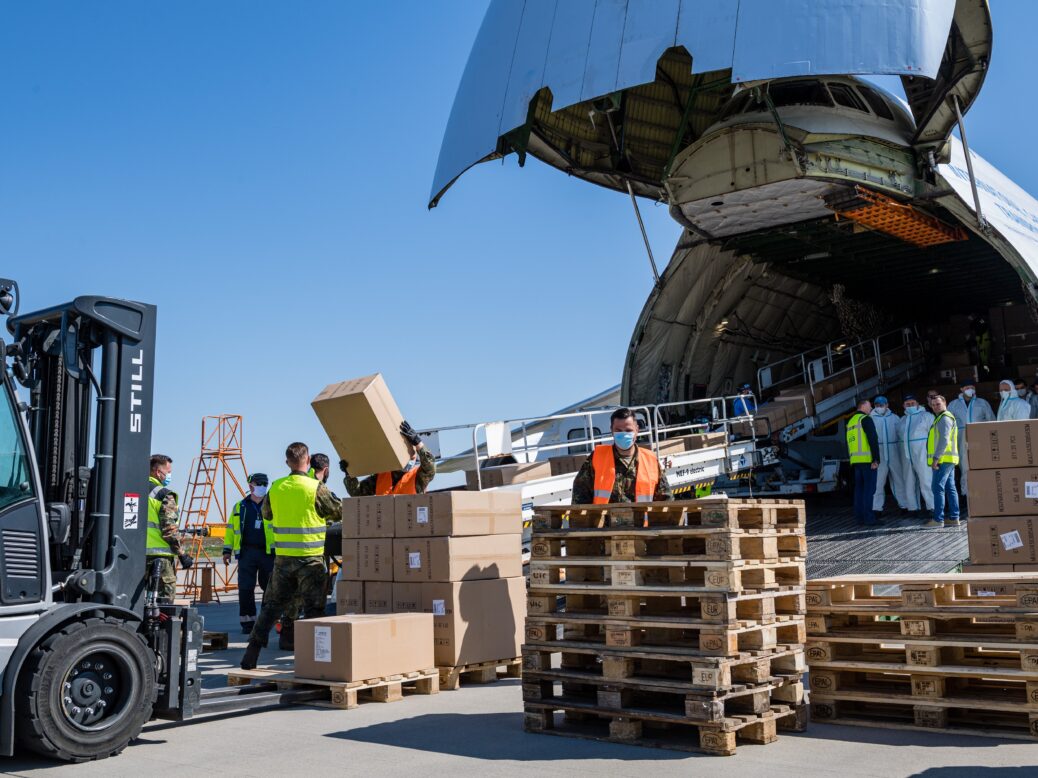
At first glance, you could be forgiven for thinking Covid-19 was good for the environment. Carbon dioxide (CO2) emissions fell 7 per cent in 2020 as nations locked down. Countries and companies made more climate pledges, and politicians around the world promised to “build back better” out of the crisis.
But as global case numbers continue to grow and the pandemic approaches the 18-month mark, emissions are now set to increase by 5.8 per cent in 2021, and many of the “green” post-Covid stimulus plans appear to be dubious. What’s more, it is becoming increasingly clear that some of the measures undertaken to address the threat of Covid-19 – such as disinfecting city streets or keeping millions of Pfizer vaccine doses at minus 70 degrees Celsius – may have a profoundly negative impact on the environment.
Personal protective equipment (PPE) often dominated the news agenda in spring 2020 due to the government’s failure to procure enough of it. But now it is not a lack of PPE that is of concern, but the sheer volume that is being produced.
The New Statesman estimates that 12 billion items of PPE were purchased by the NHS between March and May 2020. This figure was reached by analysing the PPE purchasing data listed by the four national healthcare providers over that period, with the data for England had to be adjusted to cover the same timeframe as that of the others.
The emissions impact of the manufacture and transportation of this equipment is around 500,000 tonnes of CO2, equivalent to the emissions of 850,000 flights from London to New York. This figure is reached by multiplying each kind of PPE by its average carbon impact, as set out by researchers at Brighton and Sussex Medical School.
But these figures are just for PPE purchased by UK health services: the numbers become incomprehensibly vast when scaled up to global requirements, and especially so when considering the fact that hospitals are not the only setting where people wear PPE. An estimated 65 billion gloves and 129 billion face masks are required to protect citizens worldwide every month. Or to look at it another way: global sales of disposable face masks soared from $800 million in 2019 to $166 billion in 2020.
Surging demand for disposable PPE has overwhelmed waste disposal systems. In the Hubei province of China, where the disease originated, daily medical waste increased 600 per cent, from 40 to 240 tonnes per day, quickly overwhelming existing infrastructure. In the UK, municipal waste incinerators were given permission to process medical waste to cope with the increased load.
Demand for PPE has been accompanied by a relaxation of plastic restrictions. Fears over reusable items carrying the disease have encouraged the use of previously frowned-upon single-use products like grocery bags and coffee cups. Countries including the UK, France, Canada, China and India withdrew or postponed plastic bans. Plastic was the only sector of the US chemical industry – which includes everything from paints to fertilisers – that grew last year.
Over 90 per cent of all plastic ever produced has not been recycled, with the material typically ending up in landfill, or entering waterways and breaking down into toxic microplastics. An estimated 1.56 billion face masks will have ended up in the ocean in 2020, according to a report from conservation charity OceansAsia.
Of course, given the massive threat to human life posed by Covid, even the most ardent environmentalist would surely give ground to some increased plastic waste. But a shifting view of plastic, from something that is a danger to the planet to something that is “safe and hygienic”, risks halting decades of hard-won progress in tackling plastic pollution.
Is there a credible alternative to massive amounts of disposable PPE in a pandemic? Advocacy groups such as Healthcare Without Harm Europe call for measures like the adoption of reusable gowns and hand-washing when sterile gloves aren’t needed. One UK hospital managed to reduce non-sterile glove use by 30 per cent by encouraging good hand-hygiene practices.
Until the 1960s, reusable face masks were used in hospitals. Studies at the time attested to their quality and even superiority over plastic masks. But with large-scale production of medical-grade reusable masks having stopped, it is impossible to conduct similar studies today.
The Brighton and Sussex Medical School researchers who modelled how to assess the carbon impact of PPE in the NHS also modelled how improved sustainability practices could reduce that impact. They estimate that UK manufacturing, maximised recycling, as well as advocating hand-washing instead of gloves, could reduce the overall carbon impact of PPE by 75 per cent.
“Healthcare is not exempt from working towards net-zero carbon economy,” the study’s lead researcher, Chantelle Rizan, told the New Statesman. “We know that environmental disruption will be a major threat to human health. As healthcare professionals we need to develop sustainable ways of delivering health and healthcare.”
Nevertheless, when the world finds itself in an emergency, as in March 2020, perhaps it will always be a stretch to make sustainable practices a priority.
“Reusable masks are now being recommended by a lot of governments for the general population, and that’s great,” says Francesca Villiani, from health and security services company International SOS. “However, in a hospital setting there are different requirements. I wouldn’t ask any one of the doctors risking their life in a Covid ward every day to not use PPE.”
For Viliani, the only way to ensure that medical emergencies can be dealt with in a sustainable way is to prevent them from happening in the first place.
“We shouldn’t be in the middle of a pandemic,” she says. “We have known about the importance of pandemic preparedness since Sars in 2000, then with avian flu, and swine flu in 2009. PPE is the very last line of defence: if all countries had been ready for a pandemic and not let it take over in the way that it has done, we would not be here.”





